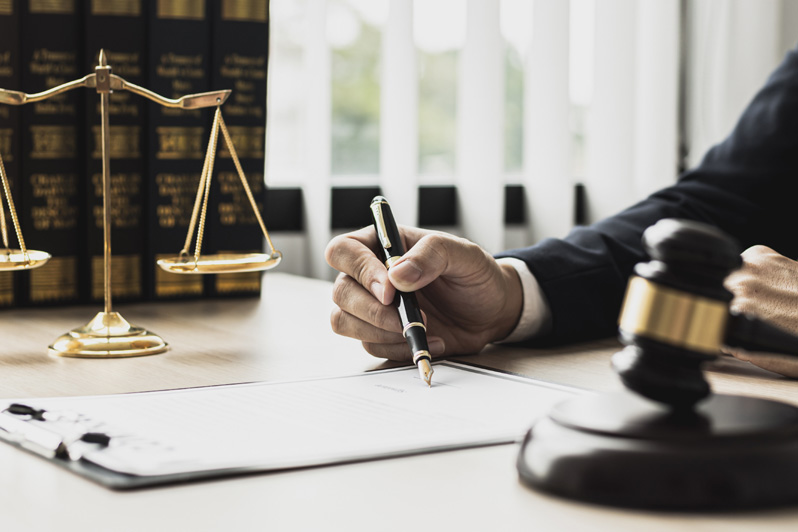

If you have been charged with a crime in Louisiana and face a potential jail sentence, one way you may be able to get your sentence and charges reduced is with a plea deal. A plea deal, also called an agreement or bargain, is an agreement between the defense and the prosecution that typically involves an exchange of less severe charges and jail time for the defendant pleading guilty.
While a plea bargain has pros and cons, if you choose to take one, the judge may reject it after evaluating the case and deciding if the punishments outlined in the agreement are appropriate. We understand this process can be confusing, so our knowledgeable attorneys at John D. & Eric G. Johnson Law Firm are here to help you understand why a judge may reject your plea deal.
5 Reasons Why a Judge May Reject Your Plea Deal in Louisiana
Every state has a different plea process, but no matter what state you are in, the judge must decide whether or not to accept the terms of the agreement before you officially enter your plea. Some criteria that could move the judge to reject your plea bargain include the following:
Criminal Record
When deciding on your plea deal, the judge looks over your criminal record to see if you committed any other crimes in your past. If you have a clean record, the judge may decide to accept your deal, as this instance may have been a mistake or a one-time occurrence. If you have a lengthy criminal record, the judge may reject your agreement because your past reflects a disrespect for the law.
Best Interest of the Plaintiff
If the judge decides the terms of the plea bargain would not be in the plaintiff’s best interest, they may decide to reject it. The judge may consider any protest from the family if they disagree with the punishments outlined in the deal.
Best Interest of the General Public
Perhaps the judge thinks the terms outlined in the plea deal would not uphold the public’s best interests. Depending on the severity of your charges and the circumstances surrounding your case, the judge may reject your deal if they think you pose a risk to the community.
The Crime Committed
The type of criminal charges you face may impact the judge’s decision on your deal. For instance, if this is a first-time offense, the charge is less serious, and the incident resulted in minimum injuries, the judge may be more likely to accept your deal. On the other hand, if the charge itself is more severe and results in several injuries, the judge may reject the bargain.
Your Character
The judge may reject your plea based on your character and behavior in court. Therefore, it’s important to show respect for the court by dressing appropriately and remaining calm. Our lawyers have ample courtroom experience, so we may be able to help you present yourself in the best way possible.
Contact a Seasoned Louisiana Criminal Defense Lawyer at John D. & Eric G. Johnson Law Firm
Receiving criminal charges can be stressful, and you may worry about how they can impact your future. You may decide to pursue a plea deal in exchange for a shorter sentence and reduced charges. However, the judge may reject your plea. While this is a possibility, our lawyers at John D. & Eric G. Johnson Law Firm fight tirelessly to better your chances of the plea bargain getting accepted.
The plea process and procedures can be complicated and overwhelming. With our years of experience, we may be able to help you understand how they work and what to do to ensure the judge accepts the agreement. No matter your charges, you deserve high-quality representation that will fight for your rights. To schedule a free case consultation, fill out our contact form or call us at (318) 377-1555.
